5 Ways The Mastercard MATCH List Impacts Your Life
November 20, 2024
How to Get Off MATCH List: 3 Ways
January 24, 2025Can I Check If I Am On The MATCH List?
If you are running into issues when it comes to your payment processing—whether your account has been canceled, rejected, or you’ve been otherwise denied—you may be on the Mastercard MATCH List. This list is a comprehensive database that essentially blacklists businesses from accepting credit cards for a number of reasons. Wondering if you can easily check whether or not you are on it? Trying to find a way to get off the list? We can help. Keep reading to learn more about the MATCH List, how to check if you are on it, and how you can get off the MATCH List if you find out you’ve been listed.
Am I On The MATCH List?
Unfortunately, there is no quick and easy way to check if you are on the MATCH List. There is no portal, website, or public database to look up your name or business name to determine whether you’re on the list or not. This database is only available to banks and payment processors to determine whether or not you are “safe” to work with.
Luckily, you’re not totally out in the dust. There are a few ways to determine whether or not you actually are on the MATCH List so that you can begin the process of moving forward. You can talk to your bank, look for signs, or seek legal help.
Talk to Your Bank
The first thing you can do if you suspect you are on the MATCH List is give your bank or payment processor a call and ask if they have placed you on the MATCH List. The downside to this method is that they have absolutely no obligation to let you know whether you are on the MATCH List or not. In addition, they have no obligation to tell you why you are on the MATCH List or give you the opportunity to get off of the MATCH List.
Speaking to your bank or payment processor can be tricky. You want to be as straightforward as possible and not let emotions get in the way if you find out that you are indeed on the MATCH List. Again, they have no obligation to tell you anything, or to allow you the opportunity to prove your innocence.
Look For Signs
If you’re not ready, comfortable, or prepared to call your bank or payment processor to ask whether they have placed you on the MATCH List, you could look for a few tell-tale signs. If you see any of the below signs, chances are pretty good that you have been blacklisted onto the TMF Mastercard MATCH List and that it is time to get some help to get off.
Some signs you have been placed on the MATCH List include:
- You’ve recently applied for a new merchant account and it has been denied
- Your merchant account has been recently cancelled
- You get a lot of chargebacks, and your chargeback rate has climbed higher than 1%
- You or your business has recently been a victim of identity theft, fraud, or a data breach
- You’ve been told that you are PCI non-compliant
Seek Legal Help
Another way to find out whether you are on the MATCH List or not is to seek legal assistance. Navigating the waters of merchant law can be difficult, especially for small business owners who already have so much on their plates. By choosing a merchant law expert to help you, we can not only determine whether or not you are on the MATCH List but find out why, prove your innocence, get you off the MATCH List early, and get you back to business as usual.
Why Am I On The MATCH List?
If you have just found out you are on the MATCH List or heavily suspect that you are on it, there are 13 different reasons that could place you there. Two of the most common reasons include excessive chargebacks and PCI non-compliance.
The list of 13 reasons why you may be on the MATCH List include:
- Account Data Compromise
- Common Point of Purchase (CPP)
- Laundering
- Excessive Chargebacks
- Excessive Fraud
- Mastercard Questionable Merchant Audit Program
- Bankruptcy/Liquidation/Insolvency
- Violation of Standards
- Merchant Collusion
- PCI Data Security Standard Noncompliance
- Illegal Transactions
- Identity Theft
As you can see from the list above, there are many instances in which you could get placed on the MATCH List through no fault of your own. In addition, sometimes no matter how strong you believe your data security is, hackers can find a way through and get you in trouble with the MATCH List. Again, banks and payment processors have absolutely no obligation to allow you to prove your innocence or hear your side of the story.
I Think I Am On The MATCH List. What Do I Do?
If you’re reading this article and believe that you are on the MATCH List, there are a number of things you can do to get off the list and keep your business moving along. They include continuing as a high-risk merchant, waiting to age off the list, or seeking early removal from the MATCH List.
Continue as a High-Risk Merchant
If you’re on the MATCH List, you can still continue business as usual as a high-risk merchant in two ways. One of those ways is to simply discontinue accepting credit and debit cards as payment methods. Being on the MATCH List doesn’t prohibit you from accepting cash as payment; however, you will have a difficult time continuing business this way.
Second, you can find a high-risk payment processor to accept you. Many businesses are inherently high-risk, such as subscription services, online casinos, cryptocurrency, smoke shops, and much more. There are 5 main types of risk: financial, reputational, legal, compliance, and operational.
The downside with signing with a high-risk payment processor is that you will have to pay much higher fees than low-risk businesses do. In addition, you will be locked into a lengthy contract that is very difficult to get out of, even if you are able to get off of the MATCH List and are downgraded back to a low-risk merchant.
Wait to Age Off The List
The good news about the MATCH List is that you are not placed on it forever. It only lasts for five years and, at that time, you will be aged off of it. Once you are aged off the list, you can consider your “time” done and you will be downgraded back to a low-risk merchant. You can apply for merchant accounts again and go back to business as usual. However, this five-year penalty waiting period is very difficult for most, if not all, businesses to survive.
Seek Early MATCH List Removal
The easiest, best way to go back to business as usual is to seek early MATCH List removal with legal assistance. We can help speak to your bank or payment processor, prove your innocence, negotiate on your behalf, and get you off the dreaded blacklist very quickly. No five year waiting period, no high-risk merchant fees, and no lengthy contracts.
MATCH List Removal Help with TFM Law
Wondering if you’re on the MATCH List, or wondering what to do now that you’ve found out you’re on it?
If you have found yourself on the Match List, you have options. Don’t wait the five-year period; get back to business ASAP. At the Law Offices of Theodore Monroe, we focus on litigation and counseling in:
- Payments
- credit card processing
- E-commerce
- Direct response marketing
- Federal Trade Commission enforcement
Last year, the firm removed 100% of the people who came to us from the MATCH list.
Theodore F. Monroe, Founder of TFM Law, has successfully:
- Represented merchants recovering funds from processors
- Structured processing relationships to comply with Card Brand requirements
- Drafted and negotiated contracts involving payment facilitators and ISOs
- Represented continuity merchants in compliance and litigation issues
- Fought for numerous companies in suits brought by the Federal Trade Commission and obtained excellent results for firms in the digital products, loan modification, government grant, and nutraceuticals industries
Before opening his firm, Mr. Monroe practiced law with Crosby, Heafey, Roach & May (now Reed Smith LLP) and Lewis, D’Amato, Brisbois & Bisgaard (now Lewis, Brisbois, Bisgaard & Smith), where he defended numerous accounting and law firms in professional liability actions, and insurance carriers in bad faith actions.
Before becoming a lawyer, Mr. Monroe worked as a forensic accountant at Coopers & Lybrand, which provided him with a unique background in forensic accounting and financial analysis among litigators in Los Angeles. Mr. Monroe studied at Duke University Law School, achieved a BS with Honors in Accounting from the University of Kentucky, and is a member of the California State Bar and the Kentucky State Bar.
Ready to get off the MATCH List? Visit us at HowToGetOffMatch.com!




